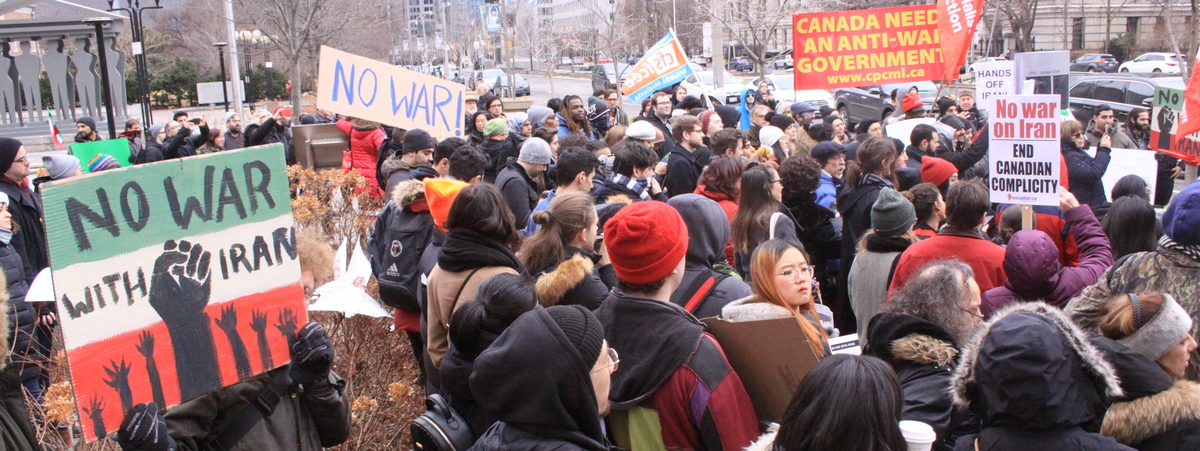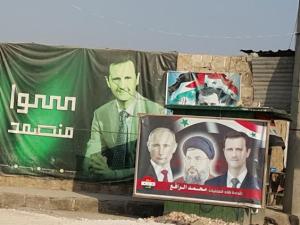This article was originally published by the Strategic Culture Foundation on December 30, 2015.
After shooting down a Russian Sukhoi Su-24M tactical bomber jet operating in Syrian airspace, in early December 2015 the Turkish government sent a heavily armed battalion to the Zilkan military base in Iraq. This move ignited tensions between Ankara and the Iraqi federal government, which renounced it as an act of Turkish aggression.
Within the contours of a resource and energy war, the Turkish military deployment was a move by the Turkish government to secure its illegal oil trade with the so-called Islamic State (ISIL/ISIS/IS/DAESH).
Turkish military base in the Persian Gulf
Weeks after the Turkish military deployment to Zilkan, the Russian military’s General Staff reported that it had tracked 11,755 oil tankers and trucks around the town of Zakho on both sides of the Iraqi-Turkish border on December 25, 2015. Despite the claims by the Kurdistan Regional Government that the oil tankers and trucks were the result of a long lineup created by the closure of the Iraqi-Turkish border due to Ankara’s military operations against the Kurds in southeast Turkey, the oil tankers and trucks were understood to be part of a re-channeled smuggling route for Syrian oil stolen by the ISIL.

The Turkish government has taken several steps to redirect its energy ties away from Russia and Iran. It is precisely in the context of securing energy reserves that Ahmet Demirok, the Turkish ambassador to Qatar, announced Ankara’s plans to open a military base in Qatar in the Persian Gulf region on December 16, 2015. In an interview with Reuters Ambassador Demirok said that the Turkish base was being set up in accordance with the security agreement signed between Ankara and Doha in 2014 and that the military base would help both Turkey and Qatar jointly “confront common threats” from certain countries, which Demirok declined to name.
The unnamed countries that Ambassador Demirok was implying could be none other than the duet of Iran and Russia. Moreover, Turkey’s announcement about the establishment of a Turkish military base in Qatar coincided with an announcement on the following day, December 17, by Salem Mubarak Al-Shafi, the Qatari ambassador to Turkey, that Doha was prepared to provide as much liquefied natural gas (LNG) to Turkey as it needed.
Israel and Turkey come together: Eastern Mediterranean natural gas
A day after Qatar’s Ambassador Salem Mubarak Al-Shafi announced that Doha would provide Turkey with as much LNG as it needed, on December 18, it was announced that Israel and Turkey had signed a framework agreement to export Israeli natural gas to Turkey. Although Turkish tensions with Russia, Iran, and Iraq could have hastened the natural gas deal between Ankara and Tel Aviv, the Israeli-Turkish framework agreement for energy trade had been quietly negotiated over for several months by the Israeli and Turkish government.
Analysts and journalists presented the natural gas agreement between Israel and Turkey as a part of a Turkish move to normalize its diplomatic and military ties with Israel as a means of counter-balancing Russia, Iran, Iraq, Syria, and their regional partners. These views and claims, however, overlook the fact there have been clear signs that Israel and Turkey have maintained their cooperation, if not close allied relationship, in the economic and military sectors. Both the Turkish and Israeli militaries have even had synchronized movements and operations on the Syrian border.
While Israel has been re-exporting the smuggled oil that Turkey has been exporting from Syria and Iraq, Tel Aviv has tried to legitimize its appropriation of the Palestinian natural gas reserves off the cost of the Gaza Strip. In parallel, Tel Aviv has exerted its full influence to gain control of the Egyptian natural gas reserves north of the Nile Delta. This is while Israel has tried to lay claim to Lebanese maritime territory holding large deposits of natural gas and courted Cyprus for control of its Mediterranean natural gas reserves.

Contours of a broader energy war emerge
The agreements with Israel and Qatar are a part of a broader energy trade nexus that falls within the contours of an energy war predating recent Russo-Turkish tensions. In fact, both Ambassador Al-Shafi and Ambassador Demirok were only repeating information about deals that were reached between Erdogan and Qatari Emir Tamim bin Hamad Al-Thani during Erdogan’s visit to Qatar at the time of the Russian military’s press conference announcing his involvement in the ISIL’s oil smuggling. Furthermore, the spatial configuration of the Israeli, Turkish, and Qatar reflected the dimensions of the energy war taking place in the Middle East.
Turkey has done almost everything possible to stop an Iran-Iraq-Syria energy corridor bypassing Turkey from being created. The Turkish military deployment to the Mosul District in Iraq and the creation of a Turkish military base in Qatar are tied to the joint goals of Turkey and Qatar for creating a rival energy corridor running through Turkey to Europe from the Persian Gulf and Iraq. The public demands that Israel give Turkey “unrestricted” access to the Gaza Strip could also be tied to the Palestinian natural gas reserves off of Gaza’s coast.
Furthermore, for years both Israel and Turkey have worked to establish a Levantine energy corridor where Eastern Mediterranean natural gas would be mainly exported northwards towards Turkey and the European Union while oil would be mainly exported southwards towards Israel. The materialization of this corridor has been obstructed mainly by Syria. This is one of the reasons that the Turkish government has pushed for regime change in Damascus.
While there are claims that Turkey is acting independently of the US government, it is highly improbable that no coordination has taken place in regards to the joint US and Turkish objective of regime change in Damascus. The re-direction of Turkish energy trade falls in line with the US objective to cripple the Russian energy sector by obstructing energy trade between the Russian Federation and other international actors.

This article was originally posted by the Strategic Culture Foundation on December 30, 2015.
Copyright © Mahdi Darius Nazemroaya, Strategic Culture Foundation, 2016




 Documents recently filed in the Ontario Superior Court of Justice reveal that some $30 million realized from the seizure and sale of Iranian government assets in Canada have been transferred to American families who filed for compensation under the Justice for Victims of Terrorism Act 2012. Their claim for compensation began in the U.S. court system but extended to Canada when they realized Canada would follow suit. The properties appropriated and sold were the Iranian Cultural Centre in Ottawa and the Centre for Iranian Studies in Toronto. The transfer of funds to the families only came to light last week.
Documents recently filed in the Ontario Superior Court of Justice reveal that some $30 million realized from the seizure and sale of Iranian government assets in Canada have been transferred to American families who filed for compensation under the Justice for Victims of Terrorism Act 2012. Their claim for compensation began in the U.S. court system but extended to Canada when they realized Canada would follow suit. The properties appropriated and sold were the Iranian Cultural Centre in Ottawa and the Centre for Iranian Studies in Toronto. The transfer of funds to the families only came to light last week.  BERLIN/BAGHDAD/AL AZRAQ (September 18) – Berlin is considering the establishment of a permanent Bundeswehr base in the Middle East, German Defence Minister Ursula von der Leyen said during her recent visits to Jordan and Iraq. German Armed Forces could be stationed at Jordan’s Al Azraq Airbase for an extended period in relative proximity to Iraq – similar to the US Persian Gulf bases.
BERLIN/BAGHDAD/AL AZRAQ (September 18) – Berlin is considering the establishment of a permanent Bundeswehr base in the Middle East, German Defence Minister Ursula von der Leyen said during her recent visits to Jordan and Iraq. German Armed Forces could be stationed at Jordan’s Al Azraq Airbase for an extended period in relative proximity to Iraq – similar to the US Persian Gulf bases. 






 is week Daniel Shapiro, a former US ambassador to Israel,
is week Daniel Shapiro, a former US ambassador to Israel, 










 On November 19, the Third Committee of the United Nations General Assembly passed Resolution L.45: Situation of Human Rights in the Islamic Republic. This resolution was drafted and introduced by Canada as part of ongoing attacks by the Canadian state against Iran that are aimed at isolating and destabilizing that country in the service of Anglo-American geo-political interests. These attacks include the unilateral severing of diplomatic relations with Iran on September 7, 2012, and putting Iran on a spurious list of states that sponsor terrorism. One of the pretexts given for these actions at that time was the accusation that Iran was the biggest human rights violator in the world.
On November 19, the Third Committee of the United Nations General Assembly passed Resolution L.45: Situation of Human Rights in the Islamic Republic. This resolution was drafted and introduced by Canada as part of ongoing attacks by the Canadian state against Iran that are aimed at isolating and destabilizing that country in the service of Anglo-American geo-political interests. These attacks include the unilateral severing of diplomatic relations with Iran on September 7, 2012, and putting Iran on a spurious list of states that sponsor terrorism. One of the pretexts given for these actions at that time was the accusation that Iran was the biggest human rights violator in the world. 




